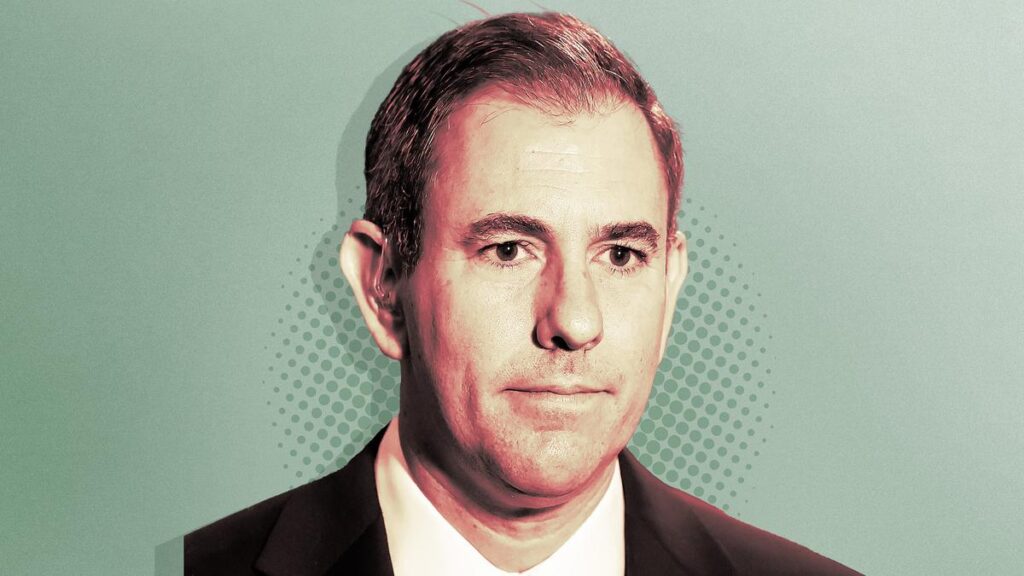Australian superannuation investors have been spared from a potentially costly new tax, after the United States confirmed it will withdraw a controversial measure targeting foreign capital from Donald Trump’s signature economic legislation.
US Treasury Secretary Scott Bessent announced on Friday that Section 899 — dubbed the “revenge tax” — would be removed from the President’s “Big, Beautiful Bill” following progress on a new G7 tax agreement.
Treasurer Jim Chalmers welcomed news of the change, calling it a “welcome one for Australians and for the Australian business and institutional investor community”.
The legislation was framed as a retaliatory response to global minimum tax rules imposed by countries including Australia, as well as digital services taxes like Australia’s News Media Bargaining Code.
Under Section 899, superannuation funds were facing a rise in the rate of withholding tax from 15 to 35 per cent at a base case and as much as 50 per cent in a more severe scenario that could significantly reduce investment returns. An estimated $450 billion of Australians’ cash is invested in the US.
The Association of Superannuation Funds of Australia previously estimated the tax could reduce annual returns by 0.1 to 0.26 per cent, depending on how far rates were lifted — a hit that could translate to tens of billions of dollars a year.
ASFA welcomed the decision to remove the measure, saying it was a positive outcome for Australian investors. In a statement, the association said the move reflected the importance of international tax stability and fair treatment of long-term institutional investors.
It also acknowledged the collaborative dialogue between Australian officials and their US counterparts in helping secure the outcome.
“This is a really welcome step from the US Treasury Secretary and the superannuation sector is monitoring developments closely,” ASFA chief policy officer James Koval said.
“This section of the legislation would have changed the risk return profile of investment in the US, which would have been a poor outcome for all involved.”
Mr Chalmers raised the issue directly with Mr Bessent during a phone call earlier this week, warning in public remarks that Australian investors and funds should not be unfairly treated by tax changes in the US.
“We do not want to see our investors and our funds unfairly treated or disadvantaged when it comes to developments out of the US,” he said after the meeting.
Mr Bessent, in a series of posts on X (formerly Twitter), said the decision followed a new joint understanding with G7 countries on the OECD global tax deal, and praised President Trump for issuing executive orders to defend US tax sovereignty.
“Based on this progress and understanding, I have asked the Senate and House to remove the Section 899 protective measure from consideration,” Mr Bessent said.
Digital tax tensions remain
While the decision removes a key threat to superannuation earnings, it may complicate Australia’s parallel efforts to hold tech giants — which pay relatively little tax on their Australian earnings — to account.
Section 899 had also been positioned as a response to digital services taxes, including Australia’s News Media Bargaining Code, which required Alphabet and Meta to pay local publishers for content appearing on their platforms.
At its peak, the code delivered between $130 million and $200 million a year to Australian media companies. But Meta has since withdrawn from the code, and Google has said it will halt payments to 24 smaller publishers in July.
The Albanese Government has flagged it is developing a new framework — referred to as a “news bargaining incentive” — but no detail has yet been released.
That proposed levy may still be in the firing line with Mr Bessent vowing to “enact tax policies that serve the interests of American businesses and workers”.
“The Trump Administration remains vigilant against all discriminatory and extraterritorial foreign taxes applied against Americans. We will defend our tax sovereignty and resist efforts to create an unlevel playing field for our citizens and companies,” Mr Bessent posted on X.
Dr Chalmers said the Government would continue to pursue efforts to fight tax minimisation.
“Australia will continue to engage constructively through the OECD on international tax rules that are fair and ensure multinationals pay their fair share in Australia.
“We’ll consider the details of the G7 agreement.”
https://thewest.com.au/business/australian-superannuation-investors-spared-as-us-drops-section-899-revenge-tax–c-19170728


